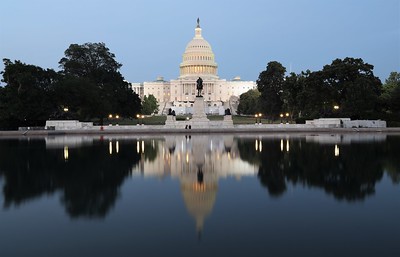With the state of American politics constantly changing, staying informed on the biggest political headlines will help many to form opinions and provide facts to support ever changing political opinions overtime.
The United States senate is currently at a 50-50 split with 50 Democrats and 50 Republicans. The tie-breaking vote will be cast by the Vice President of the United States who also serves as the President of the Senate. This means that in order to pass any bills in the Senate, the Democrats need at least 10 Republicans to join them in voting for the bill because of the filibuster.
The filibuster is a rule in the Senate which states that there must be 60 votes to open debate on a bill and 60 votes to then pass the bill in question. This rule was created to allow for more bipartisanship bills to pass the Senate and to encourage senators to work together.
Since the Senate is split equally, neither side has the majority required to break a filibuster. This is currently creating a stalemate in the Senate where no major bills such as long-term debt ceiling measures and both infrastructure bills can pass.
This stalemate is creating tension on both sides of the aisle.
“I never thought that the progress we make in legislation was basically hold one hostage over the other,” said Democratic senator Joe Manchin to NBC News in reference to the Build Back Better infrastructure bill.
In terms of the debt ceiling bill, Mitch McConnell stated on the Senate floor that no Republican votes will be given for a long-term debt ceiling measure. This leaves Democrats to attempt to pass a bill through budget reconcillation which is a maneuver in the Senate that allows for only 50 votes for a bill as long as it has to do with money or government funding.
The process of passing a bill through reconciliation is very tedious due to members of the Senate body having to vote on each individual measure in the bill. This allows opponents of the bill to delay passage by adding amendments and holding extra votes.
Many Winthrop students believe that the lack of bipartisanship in Congress is hurting the country.
“Compromise is extremely lacking because neither party seems to want to be that party that has less of their ideas contributing to the issue,” said Courtney Franklin, a senior psychology major.
Other students echoed Franklin’s idea about the lack of bipartisanship within Congress.
“Americans aren’t receiving anything right now because the parties are too busy arguing about what is right and wrong regarding bills,” said freshman psychology major, Catie Dixon.
“The government made a daunting statement a couple of weeks ago saying that we are going to run out of money by Oct. 18 because the Republicans are so hung up on not letting Biden pass his agenda,” said Logan Szyjkowski, a freshman music education major.
A lack of bipartisanship and virtual stalemate in the Senate is also dividing the country more according to Winthrop students.
“I think the lack of bipartisanship is tearing the country up and only creates a bigger divide with the community and citizens. If Congress can do it well, why not the average citizen,” Dixon said.
Politics are a complicated game of give and take that can be tough to keep track of. Staying informed can be one of the best ways to keep track of who’s winning “the game” of Congressional politics.




